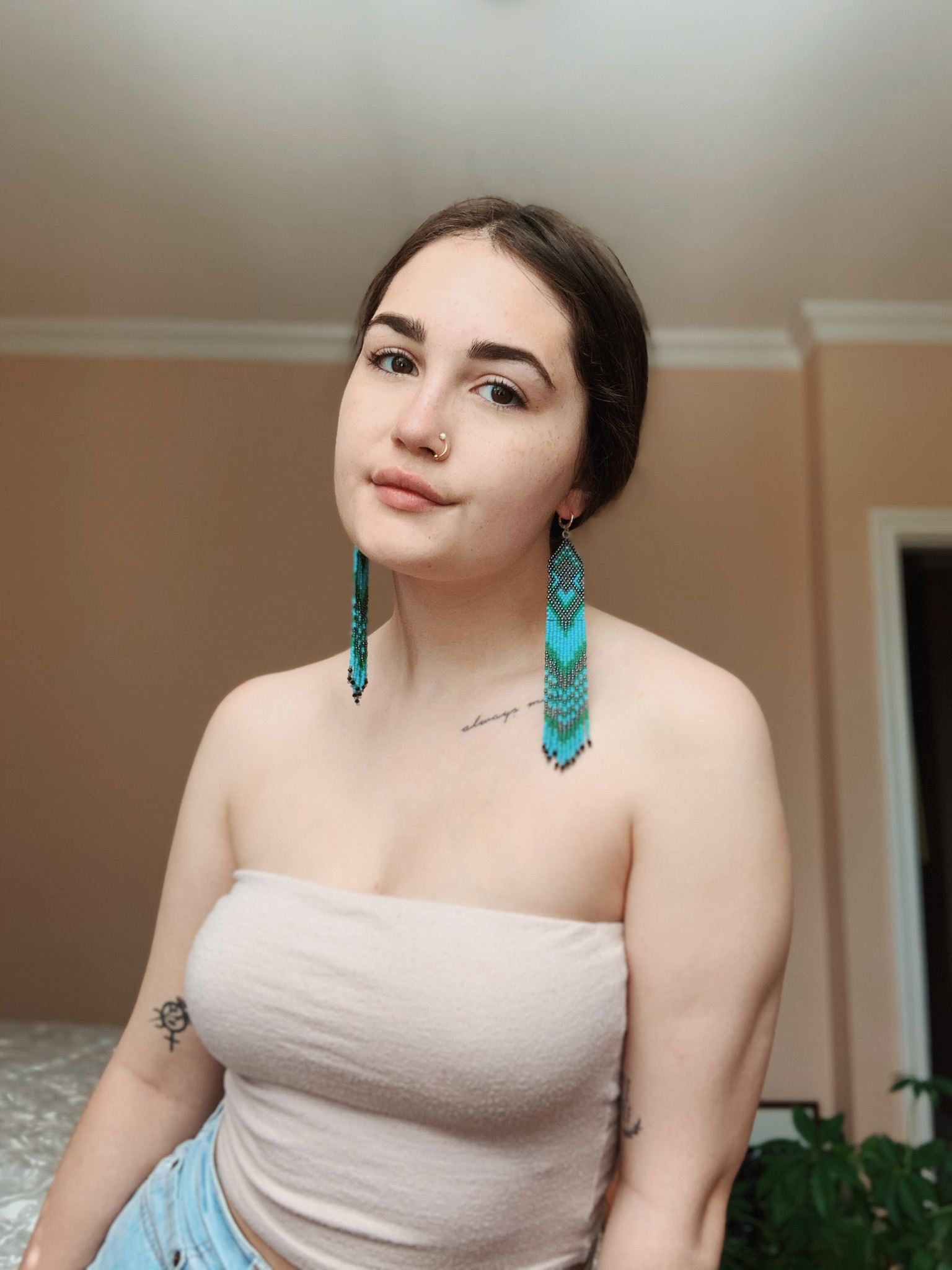By Tayvie Van Eeuwen
@tayvieee
November is looking up, y’all! Here is some recent good news.
Local
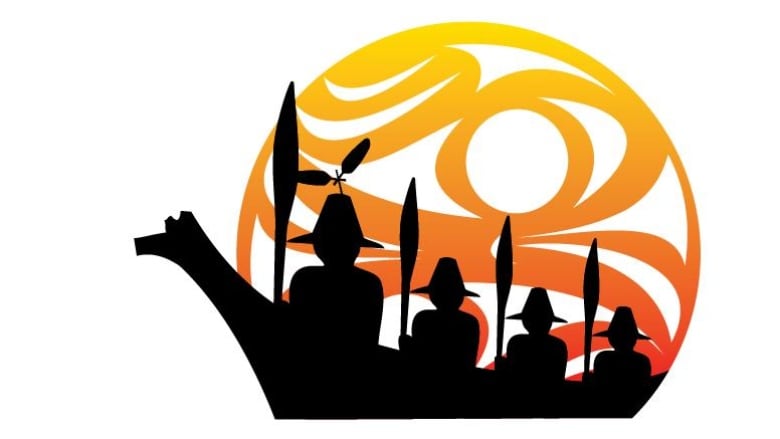
Hello beautiful!
On November 3, the Board of Education for the Cowichan Valley School District revealed their new logo, designed by Stuart Pagaduan, a Cowichan nation member and Hul’q’umi’num language and cultural advisor.
The design features a rising sun with traditional images of a spaal’ (raven) and a wuxus (frog), along with four canoe members. Over the next few months, the beautiful logo will replace the district’s previous imaging.
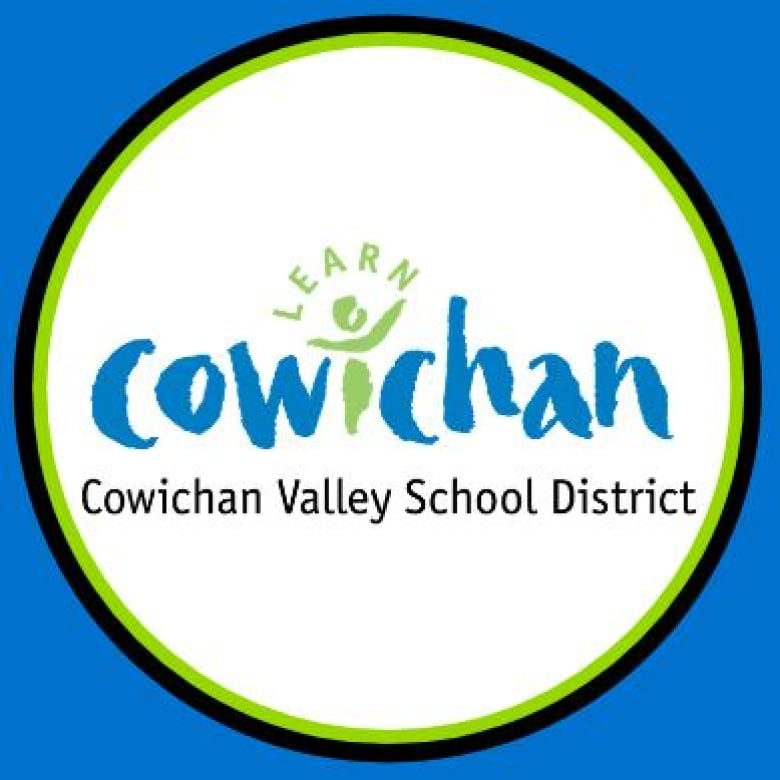
As stated in a media release from the school board, the logo did not properly represent the community. Pagaduan’s artist creation is part of the board’s 2020-24 strategic plan that included input from community members, staff, and students.
National
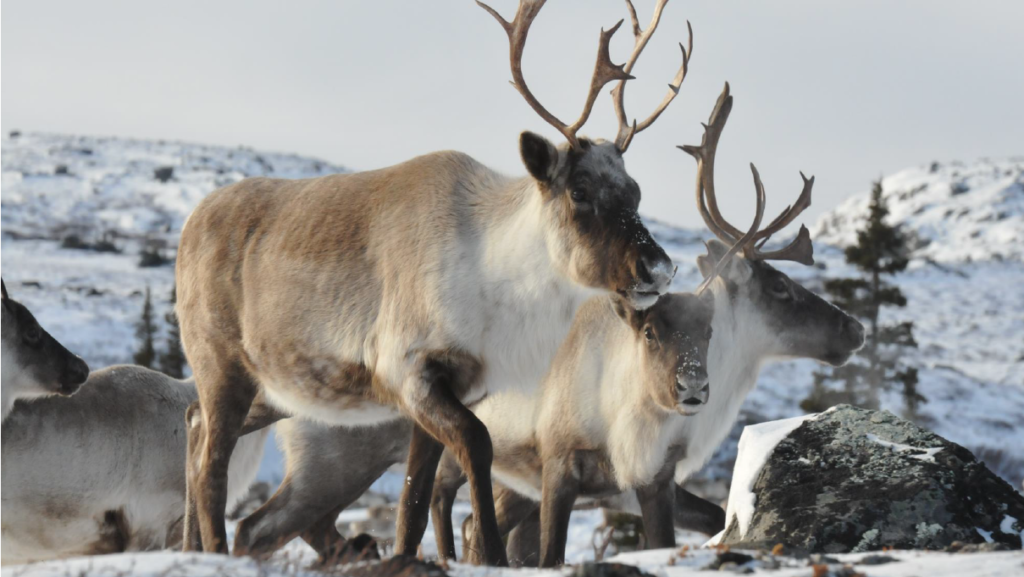
George River Caribou exhibit first population increase in over 25 years
Seems like humans weren’t the only ones getting busy during quarantine, if you know what I mean. 😉
This summer, researchers were shocked to witness a “baby boom” in the critically struggling George River caribou herd from Labrador and Quebec. The population growth has sparked immense celebration—marking the first increase in over 25 years.
The herd once stood at 750,000 caribou strong, but due to unknown factors, in recent years the herd has dwindled dramatically. A 2018 count saw only 5,500 animals.
Since 2013, the herd has been banned from both commercial and personal hunting—a regulation that has had significant cultural impacts for the Inuit peoples of Labrador’s north coast.
Luckily, this summer’s estimation puts the population at 8,100!

“When we were informed last week, it was hard to contain myself,” Gregory Flowers, minister of lands and natural resources with the Nunatsiavut government, Labrador’s Inuit government, told CBC.
The population research shows that calves currently comprise 35 per cent of the herd, underpinned by a strong female group.
As Flowers reaffirms, “If we respect the caribou, respect the ban, I think it’ll be great for all Indigenous people in the future.”
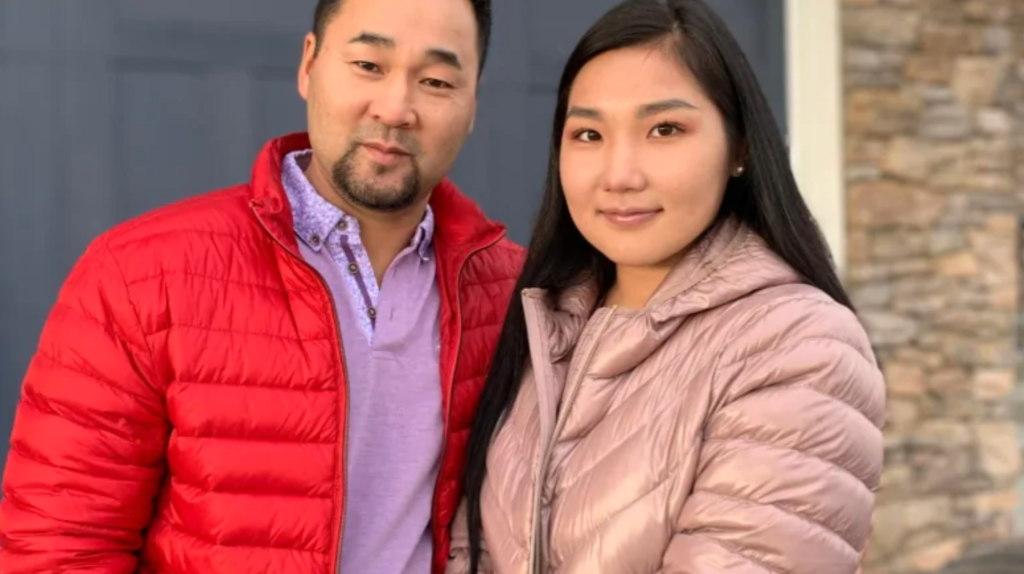
Calgary father shares thanksgiving with a daughter he never knew existed
What a happy surprise!
Namuunbileg Basaa, known as Billy to his community, came to Canada 22 years ago as Mongolian refugee and never looked back. Without connections to his home country, Billy was unaware that shortly after his departure, his unknown daughter was born.
In Canada, Basaa set up a new life, complete with a successful career and family of his own. However, in 2014, he received the news of a lifetime: he had a daughter, Indra, living in Mongolia.
Over the years, the two built a relationship online—keeping up regular communication and even talking about Indra moving to Alberta permanently.
In September of this year, their dream of reuniting finally came true! Indra departed a flight from Japan and arrived in Calgary to meet her new family for the first time.
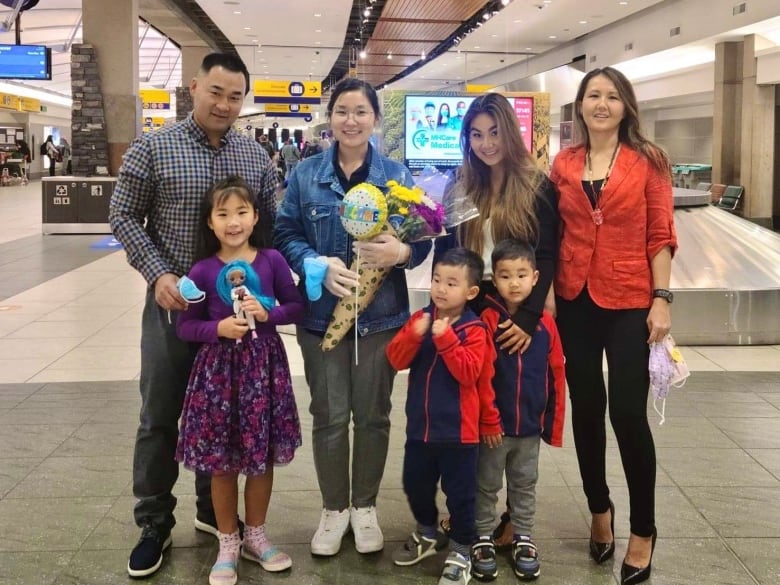
“It was the happiest moment for all of us,” Basaa told CBC. “It was unbelievable, unreal, I couldn’t describe what we felt.”
As for Indra, she also describes the experience as unbelievable, explaining that life in Mongolia was tough.
Now, after COVID-19 self-isolation, Indra is ready to start a new life in Canada with her family. Truly, the best present there is. 🎁
World
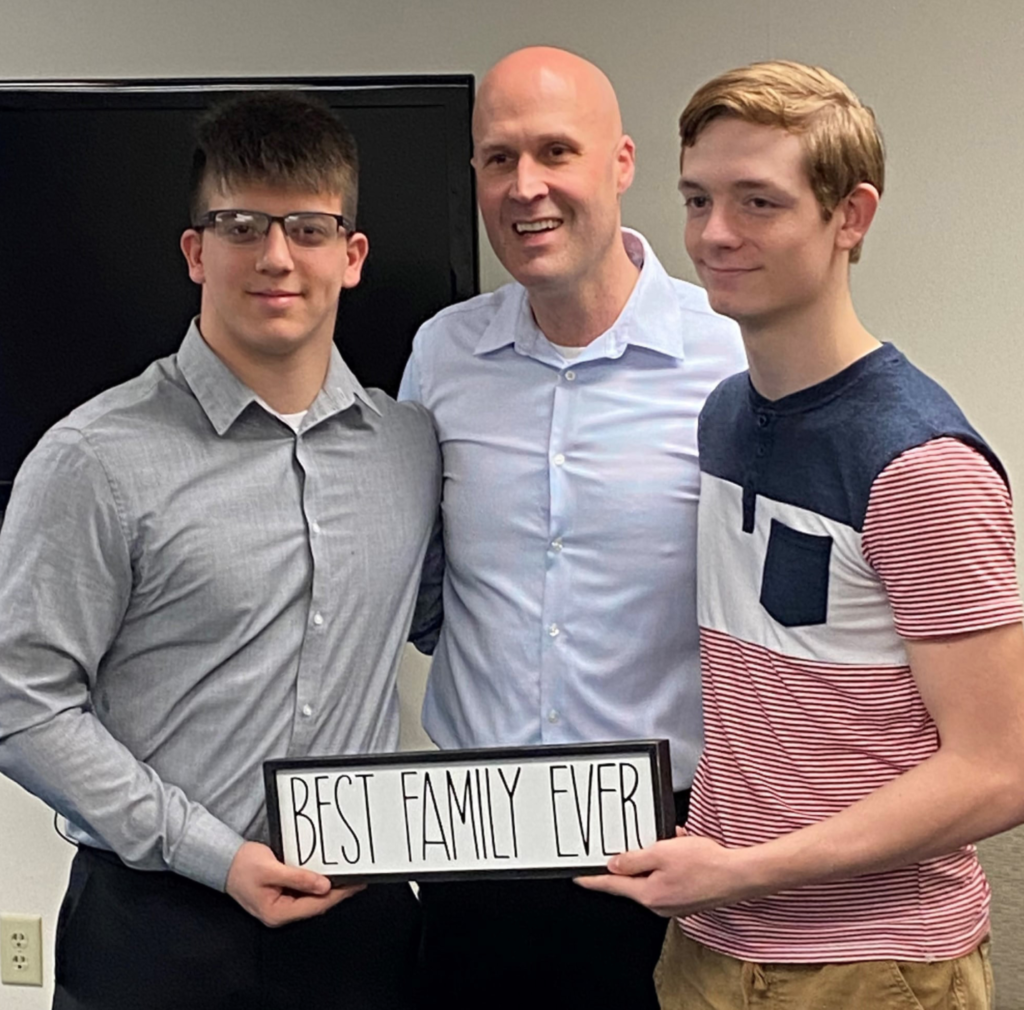
School Resource officer adopts two high school students
This one made me tear up a bit. Okay, a lot.
Meet Ryan Patton: a school resource officer who has worked for the Clermont Count Sheriff’s Office for the past 12 years.
In 2006, he met Brad—a 13 year old student who had been missing from school for over two months. Eventually Brad’s caseworker at Clermont County Children’s Protective Services found him at juvenile court, where Patton was prompted to take the teen under his wing.
Without a foster care license, Patton worked out an arrangement with child protective services in which he would become Brad’s temporary legal guardian.
In a release from government officials in Clermont County, Patton explained the transition from being a bachelor to father figure.
“I’m 37 or 38 taking on a teenager. I had lived alone and was a creature of habit. The first day, I almost burned the house down while making hamburgers and fries.”
After two years of successful foster care, Patton and Brad made the decision to expand their family. A local teen who was struggling in his foster placement got assigned to Patton, who was weary of assuming care for a stranger.
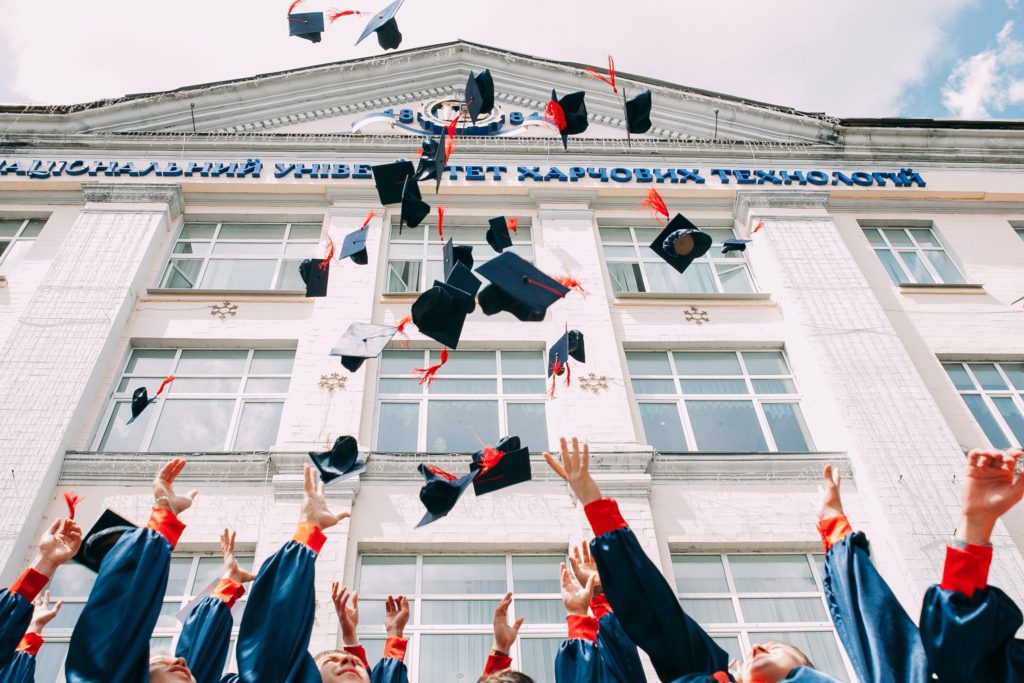
As the release explains, Patton and Nick had actually met before when Patton would accompany probation officers to pick Nick up for skipping school.
“It’s kind of a funny story because I only had a first name and didn’t know if I wanted to take on a stranger,” Patton said. “I asked Brad, who said, ‘Yeah, let’s give it a try.’ Then, it turned out I knew I knew him.”
This year, their family became official, as Brad was formally adopted in February and Nick in August. Both teens have flourished—Brad has since graduated and enlisted in the U.S. Army Infantry, with Nick being a sophomore who is enjoying newfound stability.
Faith in humanity restored! 💛
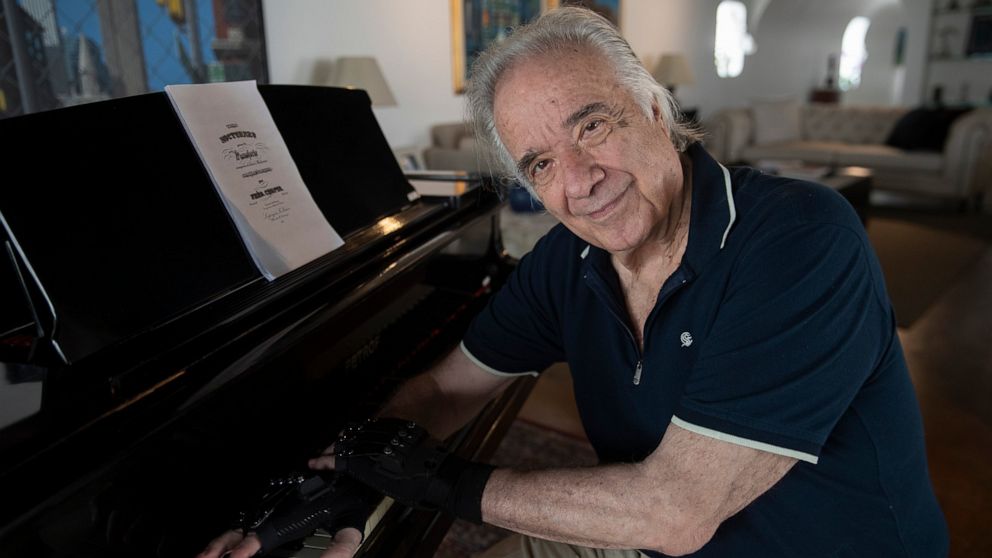
Brazilian pianist plays for the first time in 20 years with the help of bionic gloves
Earlier this year, renowned pianist João Carlos Martins rushed to a Sao Paulo bar to show his friends his new bionic gloves. The advanced gadget was a dream come true for Martins, who at 79 years old had not played for 21 years.
Prior to the gloves’ arrival, Martins had announced his retirement, after more than 20 surgeries had failed to decrease pain from a degenerative disease and multiple accidents. Even work as a conductor was off the table since the early 2000’s.
“After I lost my tools, my hands, and couldn’t play the piano, it was if there was a corpse inside my chest,” Martins told The Associated Press.
If not for Ubiratã Bizarro Costa, Martins most likely would have never been able to create music again. The neoprene-enclosed gloves push Martin’s fingers upward after they push the keys, thus, giving the pianist almost a full range of motion.

“I did the first models based on images of his hands, but those were far from ideal,” Costa explained. “I approached the maestro at the end of a concert in my city of Sumaré, in the Sao Paulo countryside. He quickly noticed they wouldn’t work, but then he invited me to his house to develop the project.”
Months and several prototypes later, the pair has built the perfect pair of bionic gloves—costing only $125 USD to make.
Now the maestro is back to practicing music, retraining himself all hours of the day—much to the delight of his community. 🎹
Happy Suggestions
Here are some more stories that deserve a shoutout!
Baby Rhino Rescued and Reunited With Mother
Biden’s German Shepherd Major will be First Shelter Dog in the White House
How Indigenous Voters Swung the 2020 Election
Ritchie Torres Wins House Race and will Become First Black Member of Congress Who Identifies as Gay
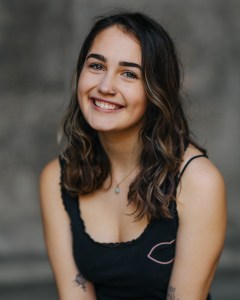
Tayvie is a Métis/Anihšināpē and Irish/Scottish student and writer. Her circle is small, but her joy is large. She splits her time between over-thinking and visiting Disneyland. Read her articles to take a peek inside the world of mental illness and happy news, because it’s all about balance, right?

